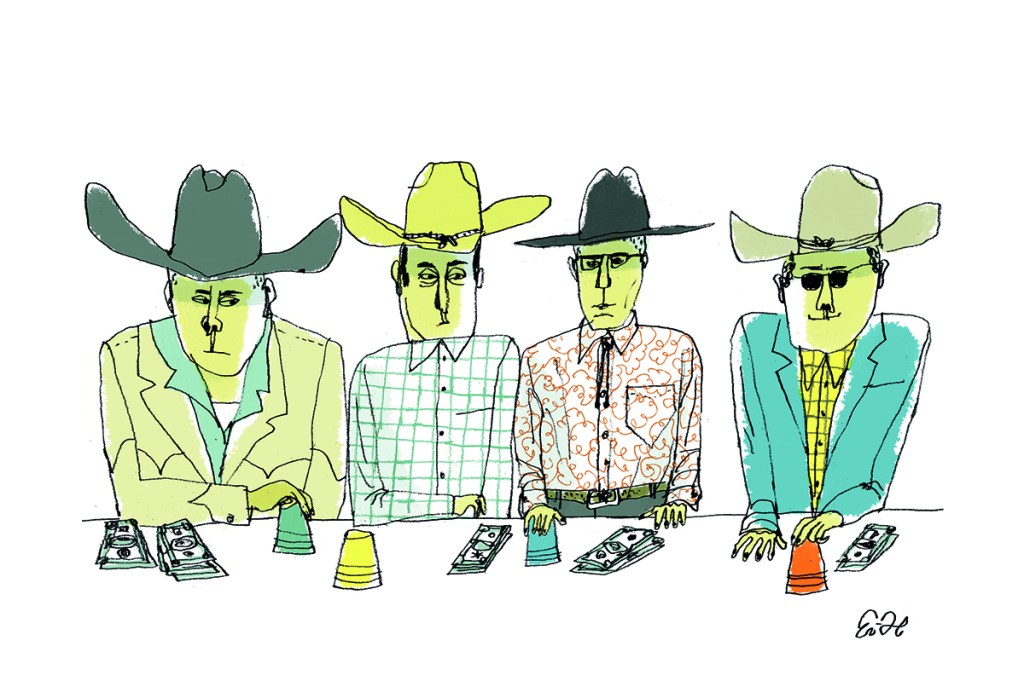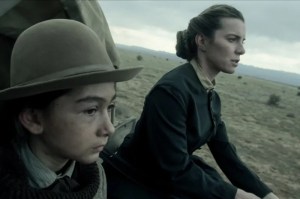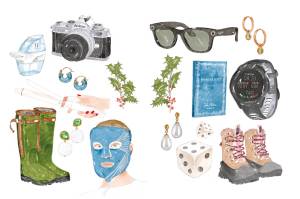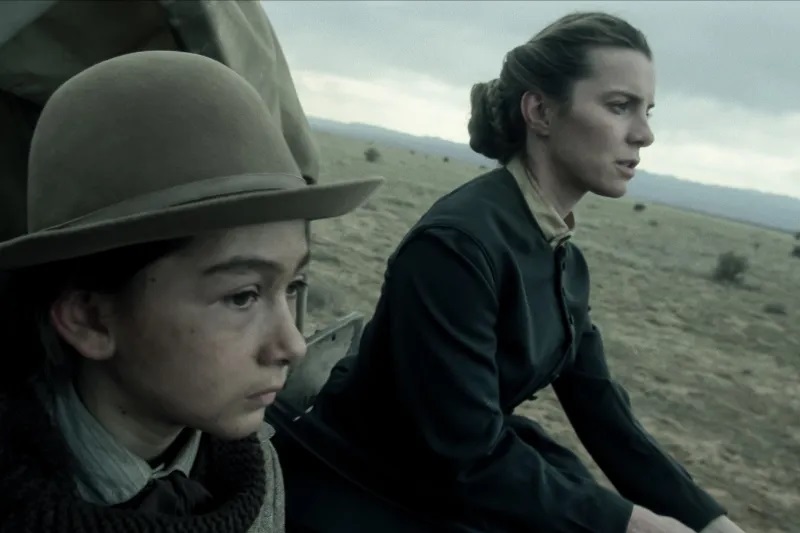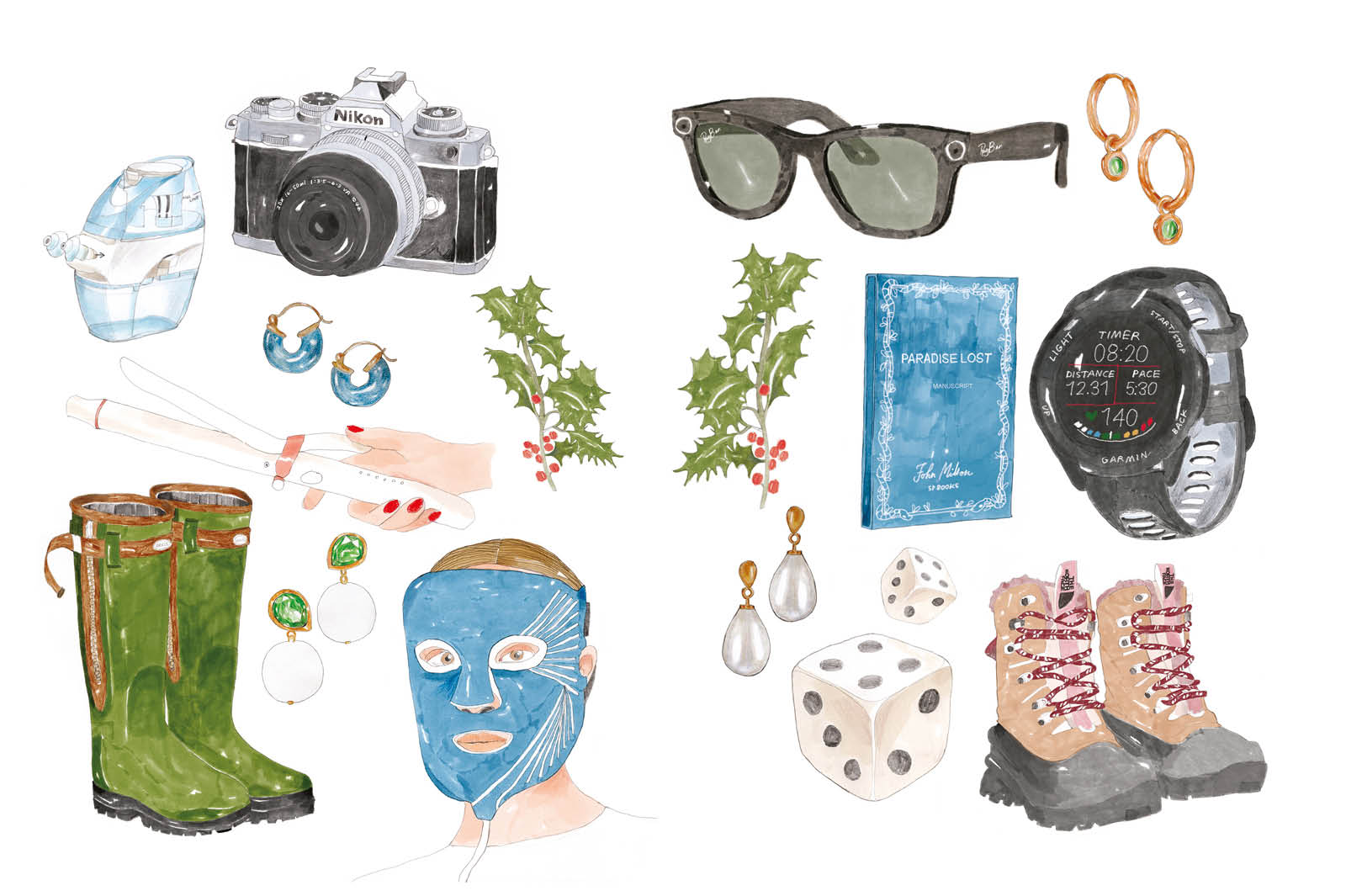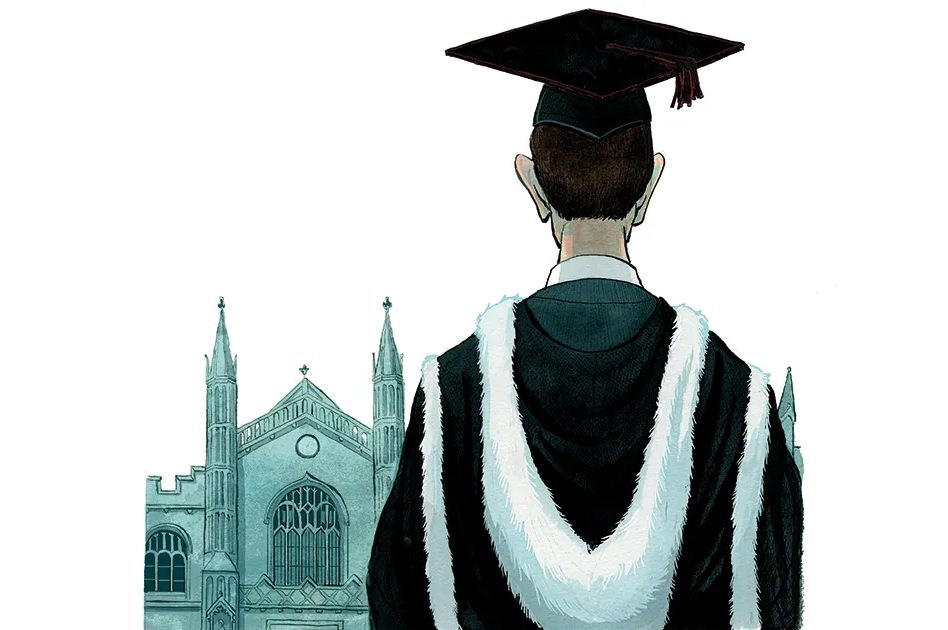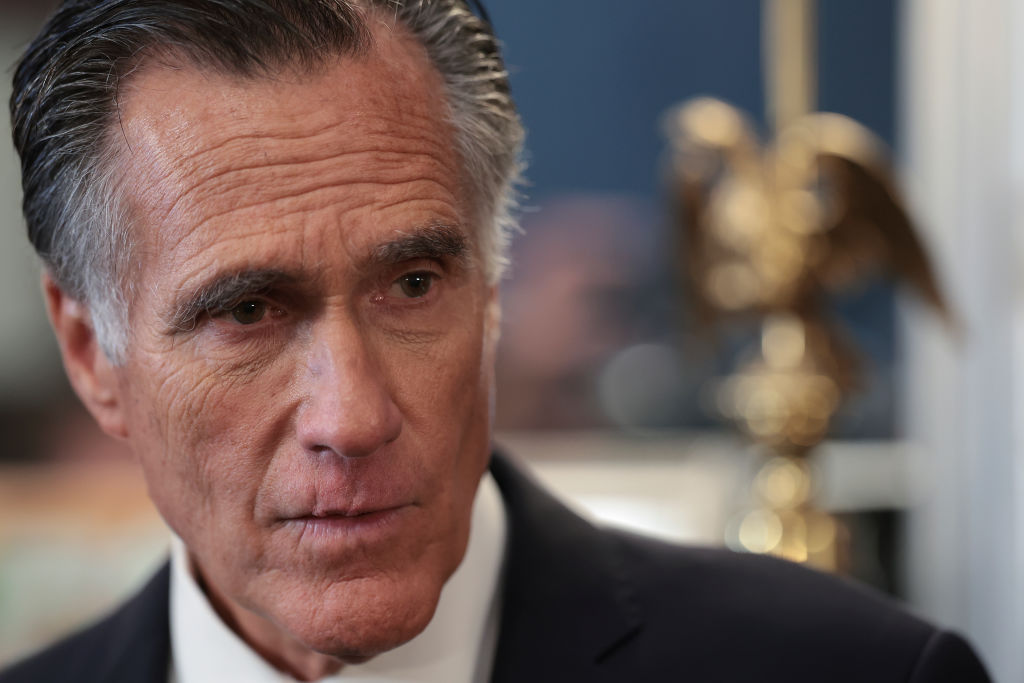I’m two miles outside Wanship, Utah, at a remarkable new hotel called The Lodge at Blue Sky. I’ve just met my host in the bar, a bear of a man called John Tuffman, or ‘Tuff’, as I’m told to call him by his assistant. Owing to my delayed flight, we’re running a little behind schedule. ‘Down the hatch’, he says, nodding to my beer while he repositions his Stetson. We climb into a car and are driven up to the barn.
A few weeks ago, I received an email which I had every right to believe was a scam or an elaborate catfishing attempt. It was an invitation from an events company in San Francisco to appear as the World Perudo Champion at an executive retreat in Utah. At 6 p.m. on August 2, I was to show up at a hotel outside Salt Lake City to mingle with a team of executives from a mysterious tech company, with an even more mysterious passion for playing Perudo.
For the uninitiated, Perudo is a South American version of liar’s dice not so coincidentally invented by my father. Two years ago, I managed to win the World Championship, an event — rather embarrassingly — co-hosted by said father. If that wasn’t bad enough, my girlfriend had been asked before the tournament to present the award to the winner. She accepted on the assumption it wouldn’t be me. But I bluffed my way through the tournament and after a successful call of ‘calzo’ (think ‘exacto’) on the final table, I doubled my dice and was able to see off my fellow finalists. When she reluctantly came to present me with the trophy, I leant in for a smooch. Cries of ‘Foul play!’ filled the air as it appeared the Perudo Prince was also bedding the tournament’s presenter.
Tuff and I walked into a barn the size of an aircraft hangar. Clusters of people milled about in the half-light, all wearing cowboy hats and plaid shirts. That afternoon they had been fly-fishing in Wyoming, ‘choppering’ there and back. A sommelier and a milliner, evidently, had been part of the previous night’s entertainment. It was a long weekend rammed with activities, so I was told, to make up for not being at the Olympics in Tokyo. It dawned on me that I had been flown halfway across the world to fill the shoes of Simone Biles.
One by one, I was introduced to the team, 17 of the company’s highest-performing executives. As we began to chat about Perudo, I realized I would have my work cut out. Perudo’s rules get lost in translation across a dinner table — there was no way it would be any different in cowboy country. But for now, we shot the breeze. The ice swirled in my glass. John Denver crooned through the speakers. I began to tell the story of how my father discovered Perudo.
Lima, 1984. My father Cosmo was visiting his friend Alfredo Fernandini. They were at a golf club one day with Fernandini’s father, and when they retired to the bar, Cosmo noticed everyone playing this game dudo. It involved throwing dice in a cup, slamming the cup on the table and then taking it in turns to bid which value of a certain die was under everyone’s cups. My father joined a game and got hooked. Cups, dice, a flat surface, skill, luck, bluff: it was simple and it had it all.
Cosmo and Fernandini had the bright idea of bringing it to London. They adapted the rules and found a leather artisan in Lima to fashion some sets. My mother combined Peru and dudo to come up with a name. Perudo hit the market in London in 1989 — they sold their first set in a South American crafts shop — and it took off. Fernandini began hosting regular Perudo nights at his club, TwoBrydges. My father began hosting tournaments at the Groucho, a private members’ club where the likes of Sting and Richard Branson squared off to outbid each other. Perudo was soon giving backgammon a run for its money as the smart set’s game of choice. The comedian Stephen Fry called it ‘the second most addictive thing to come out of South America’.
Utah, 2021. The guys couldn’t wait to play, but first we had dinner to get through. Course after course: corn salads, grilled tilapia, bison steaks washed down with Cabernet. A live band started up, and one by one the diners broke away to join a line dance. ‘Right, left, right left right turn!’ sang the bandleader, as the executives kicked their boots in the air and swiveled to a two-step. After a few songs, Tuff took to the floor and announced that it was ‘Perudo time’. Three high tables were arranged to the side. We were an even number so I chose to sit out and referee. It seemed the right thing to do but I was also wary of losing my world title to an amateur on a hill in Utah.
Each player received a wad of fake cash with Tuff’s face emblazoned on the bills, a company-made Perudo cup and five dice. At some point, real cash was introduced. The last man standing from each table progressed to the final round. A hefty sum piled up. Everyone crowded round, bluffs and counter-bluffs were called. In a dramatic swoop, a winner was declared, backs were thumped, the cash handed over. I presented a custom leather set to a disheartened runner-up and distributed some Perudo trucker caps I had brought along. We said our goodbyes and stumbled towards the barn door, into a luminous night. Someone bundled me into a car. I woke eight hours later in my hotel bed in Salt Lake City.
From the moment I landed in Utah, I was desperate to meet a Mormon. To me, Mormonism meant three things: Utah, Mitt Romney, polygamy. I tried the cabby who collected me from the airport: ‘No sir, I’m from Pakistan.’ I tried the driver who took me to the event, an African-American man from Salt Lake City: ‘No man, not me.’ When I headed out for coffee in the morning to quell the hangover, I stopped two passersby in the street under the pretext of asking directions. Neither was Mormon. I was beginning to lose faith when I popped the question to the check-in girl at the hotel. She guffawed gently and said no, but pulled out a map and said ‘if I was interested in the Mormon thing’ I should head to Temple Square.
So I went. Bingo: Mormons everywhere. A lecture had just ended at the Latter-day Saints Conference Center, so I was wading through a deluge of mostly female missionaries heading into the city to do God’s work. I stopped one pair, told them they had five minutes to convert me, and then stopped two more. They were all in their late teens, completing their 18-month mission before starting at college. Mormons don’t smoke. They don’t drink. Not even caffeine. No sex before marriage, no gambling, no swearing, no pornography. Apparently this is all laid down in their Ten Commandments — an elaborate version of the original set — which they follow, or try to, to the word. I asked one pair if they had ever slipped up, maybe had a drink or a smoke during their rebellious high-school days. They nodded proudly, ‘Never…but I had a Coke yesterday’, said Sister Owens, smiling nervously. She offered me her number should I need any more answers.
I couldn’t visit the Mormon Temple as it was under reconstruction, so had to make do with the doll’s-house model in the LDS Conference Center. I popped my head into the lecture hall, a 21,000 seat room where they come to hear the Prophet speak. I spoke to another couple, two Mexican girls, Sisters Rico and Camacho Medina. Baptized as Catholics, they converted to the Church of LDS in their early teens. Sister Rico followed her father into the church. Her mother initially resisted, sending the dogs after any LDS missionaries caught knocking at the door. When I asked what made her finally come round, she said ‘family’. They were ‘very family-oriented and that’s what the Church is all about. And Jesus, of course. We wanted to be closer to Jesus, and have that spiritual wholeness.’ As I was leaving, Sister Rico asked if I was on Instagram. I laughed. ‘Are you allowed on Instagram?’ I asked. ‘That, yes,’ she smiled.
My driver to the airport, Matthew, was a true delight — a ‘Filipino Apache Irishman’ with a manbun and lots of bangles. His radio was tuned to a rock station and he had a lot to say about the Mormon thing. Polygamy is not widely practiced in Utah. ‘Plural Marriage’ was officially outlawed by church leaders in an 1890 manifesto when it prevented Utah from joining the Union. Several splinter groups still practice it today, chief among them the Fundamentalist Church of Jesus Christ of Latter-day Saints (FLDS), whose leader Warren Jeffs is currently serving life plus 20 years for acts concerning two ‘child brides’. Jeffs purportedly has 87 wives and at least 60 children. He maintains his belief that the more wives a man has, the closer he is to Heaven. Although he may be onto something here, acting out this belief today only lands you in a federal prison.
‘The Things We Do For Love’ by 10cc played on the radio. Matthew had clearly gone through the mill: ‘I’ve been Catholic, Protestant, Jehovah’s Witness, Lutheran, Baptist, and LDS…oh, and I was a Mason and at one point belonged to the Satanic Temple. So do I believe in religion?’ he asked. ‘Nope, not one bit. Just believe in yourself, man.’ Which seems a reasonable motto for life, and also for a game of Perudo.
This article was originally published in The Spectator’s November 2021 World edition.



